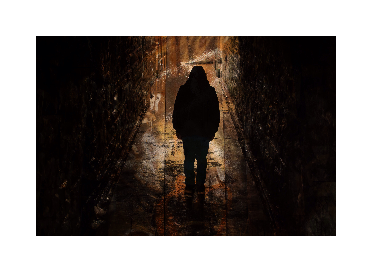The pressures of being a teenager can be immense, so it’s no wonder depression is a fact of life for so many young people. You’re not alone and you can escape: here’s how.
How many times have you heard people say they’re depressed, when they’re really not? Maybe these people are a bit down because they’re having a bad day, but that’s very different from depression. You can usually escape feeling fed up, by sleeping it off. But when you’re suffering from depression it’s something that lasts for weeks or even months. It’s a state of mind and it’s hard to escape.
The pressures of modern life have led to a huge increase in depression among young people. Within the past 25 years depression in teenagers has soared by 70%, so while you may think that nobody else feels your pain, you’re actually far from alone. Since the symptoms of depression often come on gradually, sometimes it’s difficult to identify the condition early, which delays doing something about it. In severe cases of depression, it’s possible to feel so low that you have thoughts of suicide or self-harm.
Even if you’re feeling fine, one of your friends may not be, so look out for anyone doing really badly at school, taking part in fewer social activities or avoiding social contact altogether. They could also be neglecting their hobbies or having problems at home. You could be the person who stops them going over the edge.
Top Tip
If you see your GP about your depression you’ll probably be asked to fill in a depression symptom survey, which will help get to the bottom of the problem – and to fix it.
Symptoms
The symptoms of depression vary from one person to another, but anybody suffering from it will be battling with at least some of these:
- Feeling sad or hopeless
- Losing interest in things they’ve previously enjoyed
- Anxiety
- Tearfulness
- Poor sleep and continual tiredness
- Unexplained aches and pains
- Low self-esteem
- Feeling intolerant or irritable
- Finding decision making to be difficult
- Suicidal thoughts or self-harming
Types Of Depression
- Mild/ Moderate/Severe: Depression can be classified by the severity of the symptoms.
- Reactive/ Situational depression: Occurs when depression is caused by major life events such as a break up, harassment or a family death.
- Dysthymia: This is depression with less severe symptoms, but they last for an extended period of time.
- Seasonal affective disorder: Usually happens with the arrival of winter.
- Post-natal depression: Occurs after having a baby and is treated with therapy or anti-depressant medicine.
- Bipolar disorder: Consists of spells of depression interspersed with excessively high mood which can include harmful behaviour such as unsafe sex, gambling or spending sprees.
It’s a fact
When you’re feeling low it’s easy to turn to drink or drugs, but that’s one of the worst things you can do. Both will ultimately make you feel even worse, even if they offer a brief reprieve.
Feel better, faster
Ease the effects of depression and keep your mind healthy by using these techniques, courtesy of depression charity Mind (mind.org.uk).
- Break the cycle of negativity. Dark thoughts often breed more dark thoughts, so think of positive things you’ve achieved (like a good grade), and things you’re grateful for, like a loving pet or having enough food to eat.
- Do something active to keep your mind on something else. It need not be strenuous; taking part in an after-school sports club or walking home from school instead of getting the bus or a lift could help.
- Connect with others as often as possible, even if it’s just a quick phone call. Staying connected to friends and family offers perspective and will make you feel better about yourself.
Getting Help
If you think you’re depressed, see your GP as soon as possible. They’ll be able to help plan the right treatment. The underlying cause of the problem could be a trigger event such as failing an exam, a change in home circumstances, or being bullied. Whether or not this is the case, you’ll be able to get the help you need.
© Teen Health Guide Limited
Written by Victoria Evans and Jane Bianchi of Teen Health Guide, and edited by Dr William Swallow MBChB, DRCOG, MRCGP
